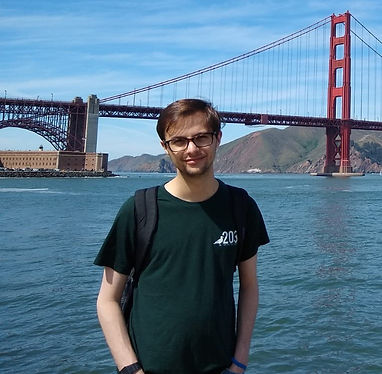
A computational phase transition in a classical or quantum system is a non-analytic change in behavior of an order parameter which can only be observed with the assistance of a nontrivial classical computation. Such phase transitions, and the computational observables which detect them, play a crucial role in the optimal decoding of quantum error-correcting codes and in the scalable detection of measurement-induced phenomena. We show that computational phase transitions and observables can also provide important physical insight on the phase diagram of a classical statistical physics system, specifically in the context of the dislocation-mediated melting of a two-dimensional antiferromagnetic (AF) crystal. In the solid phase, elementary dislocations disrupt the bipartiteness of the underlying square lattice, and as a result, pairs of dislocations are linearly confined by string-like AF domain walls. It has previously been argued that a novel AF tetratic phase can arise when double dislocations proliferate while elementary dislocations remain bound. We will argue that, although there is no thermodynamic phase transition separating the AF and paramagnetic (PM) tetratic phases, it is possible to algorithmically construct a nonlocal order parameter which distinguishes the AF and PM tetratic regimes and undergoes a continuous computational phase transition. We discuss both algorithm-dependent and “intrinsic” algorithm-independent computational phase transitions in this setting, the latter of which includes a transition in one’s ability to consistently sort atoms into two sublattices to construct a well-defined staggered magnetization.